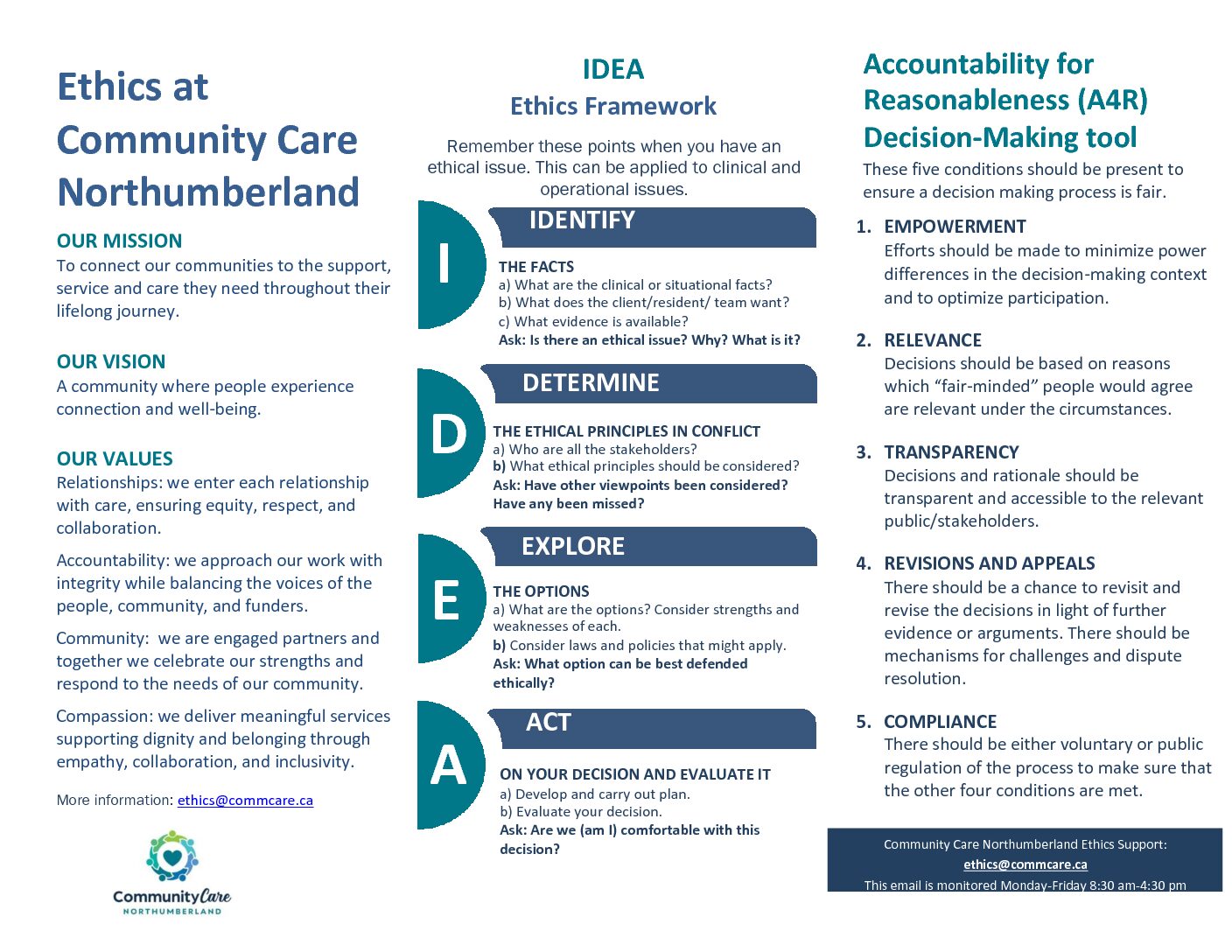Who Are Hospice Volunteers?
Hospice volunteers are community members wanting to support hospice palliative care, and clients and families using our services. Volunteers support hospice services in a variety of areas, including: client visiting, bereavement support, kitchen, reception, special events, and outdoor support.
Volunteers complete a 30-hour hospice training based off of Hospice Palliative Care Ontario’s 13 module training covering topics such as: Introduction to Hospice Palliative Care, Volunteer Role and Understanding Professional Boundaries, Communication Skills, Pain and Symptom Management, Understanding the Dying Process, Spirituality, Grief and Bereavement, Care for the Caregiver, Family, Ethics, Psychosocial Issues and Impact of Illness, Cultural Considerations, Infection Prevention and Control, and Orientation to your Local Hospice. Training and education is ongoing and sessions are offered throughout the year.
Bereavement volunteers participate in the 30-hour hospice training as well as an additional bereavement training. Bereavement volunteers support anyone anticipating a death, or grieving the loss of a loved one. Volunteers support clients with one-to-one support or in support groups.
We require adherence to the organization’s COVID-19 vaccine policy (must be fully vaccinated against COVID-19) and an up to date vulnerable sector check.

How to Become A Volunteer
Do you have a desire to help others? Are you sensitive to the special needs of others with a life-threatening illness at the end-of-life, as well as their families? Would you like to make a meaningful impact in the life of someone else? Volunteering with our hospice may be one of the most fulfilling things you ever do!
For information about volunteering, volunteer roles or the application process, please contact our Volunteer Recruitment Coordinator at volunteer@commcare.ca or by phoning 1-866-514-5774.
You can get started on the application process by downloading, completing and emailing the form below to volunteer@commcare.ca.
How do I become a hospice volunteer?
To become a hospice volunteer, you may contact our Volunteer Recruitment & Development Coordinator at 1-855-473-8875. Volunteer applications are also available on Community Care Northumberland or Ed’s House Northumberland Hospice Care Centre’s website. Once an application or phone call is received our Volunteer Recruitment & Development Coordinator will connect with you to discuss next steps.
What is the time commitment of volunteering with hospice?
Volunteering with hospice is your journey. Time commitment varies on client needs and your schedule. There is no set requirement for weekly or monthly hours; however, we do ask that all volunteers participate in at least one ongoing education session a year.
Ethics Education For CCN Volunteers:
Click HERE to see the slides presented in our recent education on:
“Volunteer boundaries and behaviors: In practice and on social media”
Presented By: Joshua T. Landry, Director and Ethicist, the Central East Regional Ethics Network (CEREN).
More Information: ethics@centraleastethics.ca or visit: https://centraleastethics.ca
WHAT IS ETHICS IN HEALTH AND SUPPORTIVE CARE SETTINGS?
Ethics involves helping clients/residents, families, and those who work in health and supportive care settings when they are facing difficult moral or value-based choices about the right or best course of action. The goal of discussing ethical issues is not to impose values on others, but to help individuals and groups in solving complex problems so they are able to make informed decisions about treatment or care.
Topics in health and supportive care that might present an ethical challenge could include:
- Value differences and conflicts
- Wait-list concerns
- End-of-life decision-making
- Allocation of resources
WHAT IS AN ETHICIST & HOW CAN THEY HELP ME?
All Community Care Northumberland (CCN) clients/residents, their families, staff and volunteers have access to an external Ethicist. The Ethicist is a resource person with advanced training in ethics, who can help clarify ethical issues, offer different perspectives, review options, and assist clients/residents, families, and care teams with decision-making.
WHAT WILL THE ETHICIST DO?
- Provide confidential consultation
- Ensure all relevant facts, values and options are explored
- Help people understand and explore available treatment or care options
- Identify and provide information to help people make decisions about ethical issues
- Mediate to assist individuals and/or groups when there is a difference of opinion about a particular patient care situation
- Provide education to clients/residents, families, and professionals on ethical issues that may arise
ARE THERE ANY OTHER RESOURCES AVAILABLE TO HELP ME MAKE A DECISION?
At CCN, we have an Integrated Ethics Framework to assist clients/residents, families, staff and volunteers make ethical decisions, and deal with difficult ethical dilemmas. To access our Integrated Ethics Framework, centraleastethics.ca.
If you would like to speak with the CCN Ethicist, e-mail: ethics@commcare.ca


